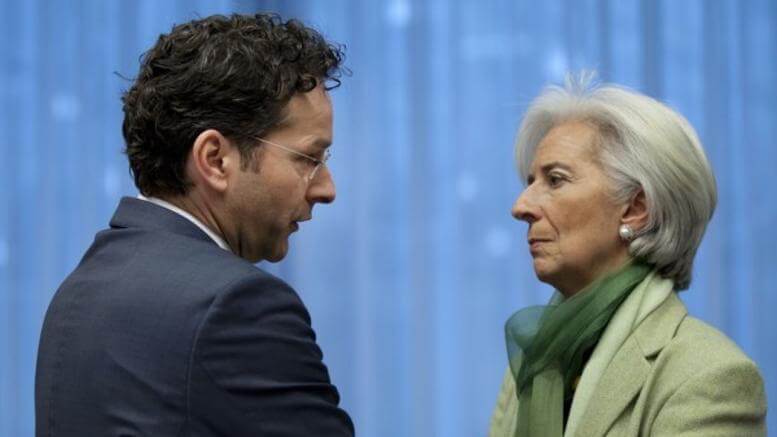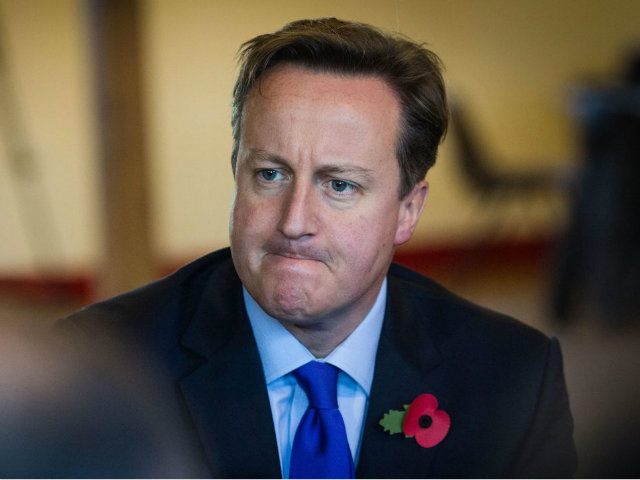By BRETT SCOTT
Banks, governments and fintech evangelists all hail a ‘cashless future’ as both inevitable and good. But this isn’t a frictionless utopia; it means that banks mediate our lives to an ever-greater extent.
Several months ago I stayed in an offbeat Amsterdam hotel that brewed its own beer but refused to accept cash for it. Instead, they forced me to use the Visa payment card network to get my UK bank to transfer €4 to their Dutch bank via the elaborate international correspondent banking system. I was there with civil liberties campaigner Ben Hayes. We were irritated by the anti-cash policy, something the hotel staff took for annoyance at the international payments charges we’d face. That wasn’t it though. Our concern was an intuitive one about a potential future world in which we’d have to report our every economic move to a bank, and the effect this could have on marginalised people.
‘Cashless society’ is a euphemism for the “ask-your-banks-for-permission-to-pay society”. Rather than an exchange occurring directly between the hotel and me, it takes the form of a “have your people talk to my people” affair. Various intermediaries message one another to arrange an exchange between our respective banks. That may be a convenient option, but in a cashless society it would no longer be an option at all. You’d have no choice but to conform to the intermediaries’ automated bureaucracy, giving them a lot of power, and a lot of data about the microtexture of your economic life
Our concerns are unfashionable. Without any explicit declaration, the ‘war on cash’ has begun. Proponents of digital payment systems are riding upon technology-friendly times to proclaim the imminent Death of Cash. Sweden leads in the drive to reach this state, but the UK is edging that way too. London buses stopped accepting cash in 2014, but do accept MasterCard and Visa contactless payment cards.
Every cash transaction you make is one that a payments intermediary like Visa takes no fee from, so it has an interest in making cash appear redundant, deviant and criminal. That’s why, in 2016, Visa Europe launched its “Cashfree and Proud” campaign, to inform cardholders that “they can make a Visa contactless payment with confidence and feel liberated from the need to carry cash.” The company’s press release declared the campaign “the latest step of Visa UK’s long term strategy to make cash ‘peculiar’ by 2020.”
There you have it: an orchestrated strategy to make us feel weird about cash. Propaganda is a key weapon of war, and all sides present themselves as liberators. Visa comes across like a paternalistic commander when assuring us that we – like a baby taking first steps – will feel a sense of achievement at liberating ourselves from the burden of cash dependence. Visa’s technology offers freedom without dependence or dangers.
Visa is joined by other propagandists. In 2014 Penny for London arrived, an apparently altruistic group set up by the mayor’s Fund for London and Barclaycard, using charity as a hook to switch people to contactless cards on the London Underground. PayPal plastered cities with billboards claiming that “new money doesn’t need a wallet”, along with a video proclaiming: “New money isn’t paper, it’s progress”. Astroturfing campaigns like No Cash Day are backed by American Express, highlighting such anti-cash themes as the environmental impact of banknotes. Other tactics include pointing out that criminals use cash, that it fuels the shadow economy, that it’s unsafe, and that it facilitates tax evasion.
These arguments have notable shortcomings. Criminals use many things that we keep – like cars – and fighting crime doesn’t take priority over maintaining other social goods like civil liberties. The ‘shadow economy’ is a derogatory term used by elites to describe the economic activities of people they neither understand nor care about. As for safety, having your wallet cash stolen pales in comparison to having your savings obliterated in a digital account hack. And if you care about tax justice, start with the mass corporate tax avoidance facilitated by the formal banking sector.
Criminals use many things that we keep – like cars – and fighting crime doesn’t take priority over maintaining other social goods like civil liberties.
The peculiar feature about this war, however, is that only one side is fighting. Very few media champions defend cash. It is like a taken-for-granted public utility, whereas digital payments platforms are run by private companies with an incentive to flood the media with their key messages. When they fight this war, their target is our cultural belief in cash, and the belief that its provision should be a public right.
The UK government does not plan to maintain that right, and is siding with the payments industry. Their position is summed up by economist Kenneth Rogoff in his new book The Curse of Cash. He argues that, apart from facilitating crime and tax evasion, cash hampers central banks from setting negative interest rates. In the absence of cash, everyone must keep their money in the form of digital bank deposits. During recessions central banks could then use the banking system to deliberately corrode people’s deposits via negative charges, ‘inspiring’ them to spend rather than hoard.
The emergent consensus among economic and political elites is that this is the direction to go in, but to manufacture consent for this requires a drip-drip erosion of public resistance. Hearts and minds must be shown that the change represents inevitable and desirable progress. Anyone defending cash in this context will be labelled as an anti-progress, reactionary, and nostalgic Luddite. That’s why we must not defend cash. Rather, we should focus on pointing out that the Death of Cash means the Rise of Something Else. We are fighting a broader battle to maintain alternatives to the growing digital panopticon that is emerging all around us.
To understand this conflict, we must step back. A monetary transaction involves specific goods or services being exchanged for tokens giving access to general goods and services from others. The pub landlord hands me beer at night if I transfer tokens that allow him to get cigarettes from a shopkeeper in the morning. There are two ways to implement this though. The first is to give the tokens a physical form. In this scenario, ‘getting rich’ means accumulating those physical things and ‘making a payment’ means handing them over to someone else. They are bearer instruments, which means nobody keeps a record of who owns them. Rather, whoever holds them owns them. This is your wallet with notes in it. This is cash.
Alternatively, you can use a ledger. Someone sets up a database with spaces allotted to different people. This is then used to keep a record of who has tokens. These tokens have no physical form, but are written into existence. They are ‘data objects’, and they are ‘moved around’ by editing the record. The keeper of the ledger thus maintains an account of what money is attributable to you, ‘keeping score’ of it for you. In this system, ‘getting rich’ means accumulating a high score on your account. ‘Making a payment’ involves identifying yourself to the keeper of the ledger via a communications system, and requesting that they edit your account, and the account of whoever you are paying. Does this sounds familiar? It is your bank account.
Over 90 per cent of the UK’s money supply exists nowhere but on bank databases.
Old banks used actual books to maintain these account ledgers, but modern banks use digital databases housed in huge datacentres. You then interact with them via your internet banking portal, your phone app, or by going into a branch. This is not a minor part of the monetary system. Over 90 per cent of the UK’s money supply exists nowhere but on bank databases. It is upon this underlying infrastructure that payment card companies like Visa build their operations. They deal with situations in which someone with one bank account finds themselves in a shop owned by someone else with another bank account. Rather than the pub landlord giving me his bank details for a manual transfer, my card sends messages through Visa’s network to automatically arrange the editing of our respective accounts. Many fintech – financial technology – startups specialise in finding ways to augment, gamify or streamline elements of this underlying infrastructure. Thus, I might use a mobile phone fingerprint reader to authorise changes to the bank databases. Much fintech ‘disruption’ merely involves putting slicker clothes on the same old emperor.
The use of high-speed communications systems to rearrange binary code information about who has what money might be new, but ledger money is as old as any bearer form. The Rai stones of the island of Yap were huge and largely unmovable stones that, while seeming like physical tokens, were a form of ledger money. Rather than being physically moved – like cash would – a record of who owned the stones was kept in people’s heads, stored in their communal memory. If the owners wished to ‘transfer’ a stone to another, they ‘edited the ledger’ of who possessed the tokens by merely informing the community. Why physically roll the stone if you can just get everyone to remember that it has ‘moved’ to somebody else? The main reason that we struggle to recognise this as a form of cashlessness is that the ledger is invisible and informal.
Cashless society, though, is presented as futuristic progress rather than past history, a fashionable motif of futurists, entrepreneurs and innovation gurus. Nevertheless, while there are real trends in behaviour and tastes to be spotted in society, there are also trends in behaviour and taste among trend-spotters. They are paid to fixate upon change and so have an incentive to hype minor shifts into ‘end of history’ deaths, births and revolutions. Innovation communities are always at risk of losing touch within an echo chamber of buzzwords, amplifying one another’s speculations into concrete future certainties. These prediction factories always produce the same two unprovable sentences: “In the future we will… ” and “In the future we will no longer… “. Thus, in the future we will all use digital payments. In the future we will no longer use cash.
Cashless society is presented as futuristic progress rather than past history
This is the utopia presented by the growing digital payments industry, which wishes to turn the perpetual mirage of cashless society into a self-fulfilling prophecy. Indeed, a key trick to promoting your interests is to speak of them as obvious inevitabilities that are already under way. It makes others feel silly for not recognising the apparently obvious change.
To create a trend you should also present it as something that other people demand. A sentence like “All over the world, people are switching to digital payments” is not there to describe what other people want. It’s there to tell you what you should want by making you feel out of sync with them. Here’s fintech investor Rich Ricci invoking the spectre of millennials, with their strange moral power to define the future. They are repulsed by the revolting physicality of cash, and feel all warm towards fintech gadgets. But these are not, on the whole, real people. They are a weapon in the arsenal of marketing departments used to make older people feel prehistoric. We’re not pushing this. We’re just responding to what the new generation demands.
And so we get Visa’s Cashfree and Proud campaign. If people really were ashamed of cash, they wouldn’t need ads to tell them. Visa must engineer that shame to teach you that what you want is the same as what they want. And if you don’t want it, just remember that cashless society is inevitable. Don’t get left behind. But this system will leave many behind. It is hardwired to include only those with access to a bank account; and bank accounts are hosted by profit-seeking corporations that operate at scale. They have no time for your individual idiosyncrasies. They cannot make profit off anyone who cannot easily be categorised and modelled on a spreadsheet.
o, good luck to you if you find yourself with only sporadic appearances in the official books of state, if you are a rural migrant without a recorded birthdate, identifiable parents, or an ID number. Sorry if you lack markers of stability, if you are a rogue traveller without permanent address, phone number or email. Apologies if you have no symbols of status, if you’re an informal economy hustler with no assets and low, inconsistent income. Condolences if you have no official stamps of approval from gatekeeper bodies, like university certificates or records of employment at a formal company. Goodbye if you have a poor record of engagements with recognised institutions, like a criminal record or a record of missed payments.
Apologies if you have no symbols of status, if you’re an informal economy hustler with no assets and low, inconsistent income
This is no small problem. The World Bank estimates that there are two billion adults without bank accounts, and even those who do have them still often rely upon the informal flexibility of cash for everyday transactions. These are people bearing indelible markers of being incompatible with formal institutional space. They are often too unprofitable for banks to justify the expense of setting them up with accounts. This is the shadow economy, invisible to our systems.
The shadow economy is not just ‘poor’ people. It’s potentially anybody who hasn’t internalised the correct state-corporate narrative of normality, and anyone seeking a lifestyle outside of the mainstream. The future presented by self-styled innovation gurus has no scope for flexible, unpredictable or invisible people. They represent analogue backwardness. The future is a world of endless consumer choice built upon an inescapable digital uniformity of automated rules, a matrix outside which you can neither exist nor think.
Back in Amsterdam I hang out with Ancilla van de Leest of the Netherlands Pirate Party. She only visits establishments that accept cash, true to her political belief in individual privacy from prying eyes. It would be wrong to assume, however, that Ancilla’s primary concern involves surveillance by a Big Brother-style bogeyman. It’s true that your spending patterns reveal much about how you actually live, and the privacy implications of having these recorded in searchable database format are only starting to be uncovered. We know that targeted individual surveillance of payments occurs by the likes of the FBI and NSA, but routinised mass surveillance could become a norm. Imagine automatic flagging systems triggered by anyone engaging in a combination of transactions deemed subversive. Tax authorities are bound to be building systems to flag discrepancies between your spending patterns and your declared profits.
It’s also true that at London fintech gatherings the excited visions of cashless society now occasionally come with a disclaimer that we should think about the power granted to those who control the system. Not only can payments intermediaries see every time you buy access to a porn site, but they have the ability to censor your transactions, like Visa, PayPal and MasterCard attempting to choke WikiLeaks by refusing to process people’s donations. We could imagine some harsh sci-fi scenario in which a theocratic regime issues decrees to payments processors to block anyone buying books deemed sexually deviant. Such decrees could be automatically enforced via code, with subroutines remotely triggering smart locks to place the offending miscreant under house arrest while automatically deducting a fine from their account.
a dose of paranoia about digital payments systems is a healthy impulse
Such automated dystopias should ideally be avoided, so a dose of paranoia about digital payments systems is a healthy impulse, even if it might be unwarranted. But that isn’t really the point. What’s more important to Ancilla and me is the looming sense of an external watcher that ‘assists’, ‘guides’ or ‘helps’ you in your life, tracking and logging your moves in order to influence you. The watcher is not a single entity. It’s a collective array being incrementally built in stages by startups and companies around the world as we speak. We feel it seeping deeper into our lives, a mesh of connected devices, cookies and sensors. Whether we visualise it as the benevolent eyes of a parent, or the menacing eyes of a tyrant doesn’t matter. The point is that the eyes have the potential to monitor you, all the time.
The proclaimed Death of Cash is thus an episode in the broader drama that is the Death of Privacy, the death of breathing room, and the death of informal, non-measured, unaccounted-for behaviour. Every action you take must forever be attached to your digital persona, dragging with it a data trail extending back to the day you were born. We face creating an entire generation of people who do not know what it feels like to not be monitored. For many economists, the war on cash will be resolved by their favourite mystical demigod, the market. This guiding force prevails when utility-maximising producers and consumers go around making rational choices with perfect information about their options, and with total freedom to choose whether or not to exercise those options. If digital payment transaction costs are lower, then cash will rightly die.
The pristine realm of market theory is unfit to assess the dynamics of this situation.
The pristine realm of market theory is unfit to assess the dynamics of this situation. Our sense of what constitutes a legitimate choice does not form in a vacuum. We are born into social power structures that tell us what normality is, and that shame us for not choosing ‘correctly’. You might be a rebel who challenges prevailing cultural norms, but those norms are conditioned by those with the greatest financial and media clout. At this moment the blaring of propaganda extolling the short-term conveniences of digital payment is dulling our critical impulses to rearrange our cultural DNA. Who is thinking about the longer-term implications of building our lives around these systems, and thereby locking ourselves into dependence upon them?
Unlike a battle fought using violence, hegemony is the assertion of power by getting people to believe in it, to see it as inevitable, unassailable and normal. Visa’s four-year plan is one such exercise, and once we’ve internalised it, we’ll choose to build their power. We’ll feel strangely comforted by the MasterCard billboard endorsed by the mayor of London. We’ll find ourselves downloading ApplePay like a dazed child accepting a gift.
So, let’s prepare for the war on cash. Remember, this is not about romanticising the £10 notes with the Queen on them. This is about maintaining alternatives to the stifling hygiene of the digital panopticon being constructed to serve the needs of profit-maximising, cost-minimising, customer-monitoring, control-seeking, behaviour-predicting commercial bureaucrats. And fear not, the Germans are onside, along with the criminals, the homeless, the street-side buskers and an army of people whose lives will never get a five-star rating on a mainstream reputation scoring system. We will forge alliances with purveyors of non-bank alternative currency systems; and yes, we will maintain the option to use our payment cards. Because what we fight for is precisely that. The option.
***
This article was first published on ‘The Long and Short’, republished here under Creative Commons License 4.0.











